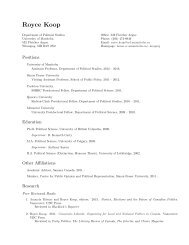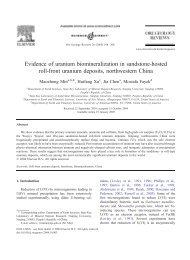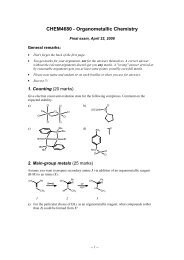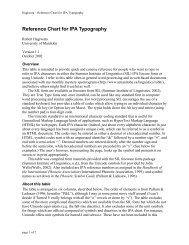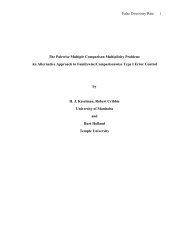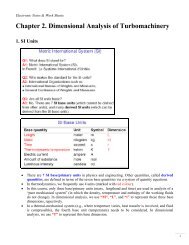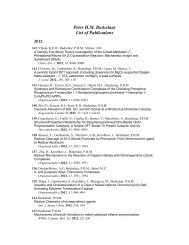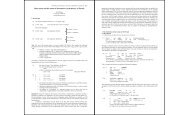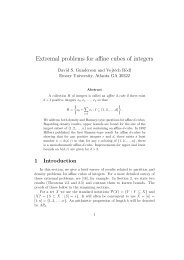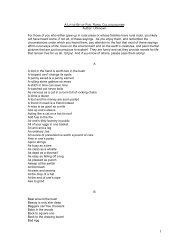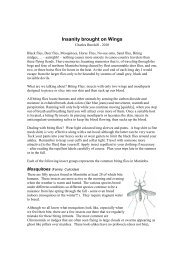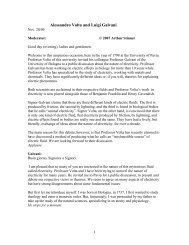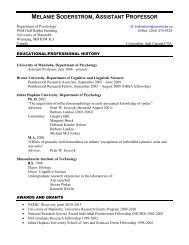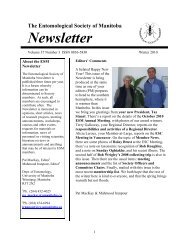Modern Scientific Rhetoric and the Septem Artes Liberales
Modern Scientific Rhetoric and the Septem Artes Liberales
Modern Scientific Rhetoric and the Septem Artes Liberales
Create successful ePaper yourself
Turn your PDF publications into a flip-book with our unique Google optimized e-Paper software.
Proposition: To an educated person, <strong>the</strong> ability to communicate <strong>and</strong><br />
discuss information is as important as simply possessing information.<br />
Effective Communication <strong>and</strong> <strong>the</strong> Medieval Trivium<br />
In <strong>the</strong> Middle Ages, Europeans divided scholarly learning <strong>and</strong> knowledge into seven categories,<br />
<strong>the</strong> so-called <strong>Septem</strong> <strong>Artes</strong> <strong>Liberales</strong> or Seven Liberal Arts. These were fur<strong>the</strong>r grouped into two<br />
divisions, <strong>the</strong> Trivium (Grammar, <strong>Rhetoric</strong> <strong>and</strong> Dialectic) <strong>and</strong> <strong>the</strong> Quadrivium (Arithmetic,<br />
Astronomy, Music <strong>and</strong> Geometry). The modern word trivial takes its meaning of “simple” from<br />
<strong>the</strong> fact that <strong>the</strong> Trivium was <strong>the</strong> basic starting point for an educated person in <strong>the</strong> medieval<br />
world.<br />
In fact, this concept is based on Ancient Greek concepts. The Greek Stoic philosophers regarded<br />
<strong>the</strong>ir task as developing a unified picture of <strong>the</strong> entire world (which sounds a lot like modern<br />
science) <strong>and</strong> <strong>the</strong>y held that this could only be achieved through physics (<strong>the</strong> study of how <strong>the</strong><br />
world works), ethics (<strong>the</strong> study of how humans work with one ano<strong>the</strong>r) <strong>and</strong> logic (<strong>the</strong> tool used<br />
to join <strong>the</strong>se two pursuits <strong>and</strong> separate truth from falsehood). Logic was divided into what<br />
became <strong>the</strong> Trivium: Grammar, <strong>Rhetoric</strong> <strong>and</strong> Dialectic.<br />
2 The Seven Liberal Arts, ca. 1180 CE.<br />
1 Abbess Herrad von<br />
L<strong>and</strong>sberg
The depiction of <strong>the</strong> Seven Liberal Arts (2) is from <strong>the</strong> Hortus Delicarum (Garden of Delights)<br />
by Herrad von L<strong>and</strong>sberg (1), <strong>the</strong> Abbess of Hohenburg Abbey near Strasbourg in what is now<br />
eastern France. 1 Knowledge is depicted as a perfect circle, complete in all ways <strong>and</strong> enclosing<br />
all things. The text in <strong>the</strong> circle reads “I am divine Philosophy, governing over <strong>the</strong> world with<br />
<strong>the</strong> wisdom of <strong>the</strong> seven arts that are my subordinates.” Philosophia sits at <strong>the</strong> centre bringing<br />
all <strong>the</strong> divisions toge<strong>the</strong>r, supported by Socrates <strong>and</strong> Plato. From <strong>the</strong> top <strong>and</strong> proceeding<br />
clockwise, we see each of <strong>the</strong> Liberal Arts depicted as <strong>the</strong> (female) Muses: Grammatica,<br />
<strong>Rhetoric</strong>a, Dialetica (Logic), Musica, Arithmetica, Geometria, <strong>and</strong> Astronomia. In <strong>the</strong> Medieval<br />
view, <strong>the</strong> <strong>Artes</strong> <strong>Liberales</strong> were superior to <strong>the</strong> <strong>Artes</strong> Mechanicae (which were <strong>the</strong> skilled crafts,<br />
engineering <strong>and</strong> <strong>the</strong> like) <strong>and</strong> <strong>the</strong> <strong>Artes</strong> Vulgares (<strong>the</strong> common applied skills).<br />
At <strong>the</strong> bottom we see four male scholars with crows pecking at <strong>the</strong>m, depicting <strong>the</strong> "godless" arts<br />
of poetry <strong>and</strong> magic. The text reads “These men are guided by evil, impure spirits, <strong>and</strong> all that<br />
comes from <strong>the</strong>m are tales, fables, airy <strong>and</strong> frivolous poetry, or magic formulas.” 2<br />
So what?<br />
Chemistry is not part of <strong>the</strong> early medieval concept of education <strong>and</strong> scholarship. In fact,<br />
chemistry grew out of <strong>the</strong> “godless” study of magic or alchemy <strong>and</strong> <strong>the</strong> “vulgar” skills of mining<br />
<strong>and</strong> metallurgy! We certainly do not agree with Herrad’s implication that chemistry should be<br />
outside <strong>the</strong> scope of rational knowledge. Why <strong>the</strong>n talk about <strong>the</strong> <strong>Septem</strong> <strong>Artes</strong> <strong>Liberales</strong> <strong>and</strong><br />
<strong>the</strong> Trivium at all?<br />
Many people today separate <strong>the</strong> expression of ideas from <strong>the</strong> ideas <strong>the</strong>mselves. We see this in<br />
<strong>the</strong> fact that most public schools no longer teach formal grammar or syntax, apparently in <strong>the</strong><br />
belief that such mechanical skills somehow inhibit students’ creativity. The Medieval concept of<br />
knowledge, as we have seen, did not work this way. The Trivium taught <strong>the</strong> concepts <strong>and</strong> skills<br />
of communication, persuasion <strong>and</strong> rational thought. The ma<strong>the</strong>matical concepts <strong>and</strong> skills of <strong>the</strong><br />
Quadrivium (note that Music was considered to be ma<strong>the</strong>matical, following <strong>the</strong> Greek<br />
Pythagorean philosophers) rested upon this foundation.<br />
My goal in this course on presenting chemistry talks is in a sense to return to <strong>the</strong> medieval notion<br />
of education. The <strong>Rhetoric</strong>al, Grammatical <strong>and</strong> Dialectical Trivium of presenting science should<br />
not be separated from what we might call “<strong>the</strong> Quadrivium of Chemistry”: Analytical, Physical,<br />
Inorganic <strong>and</strong> Organic/Biological. In learning how to present your results <strong>and</strong> ideas to o<strong>the</strong>rs, it<br />
is my hope that you will gain <strong>the</strong> ability to look at your science as an outsider does, to view your<br />
data <strong>and</strong> conclusions critically <strong>and</strong> analytically, <strong>and</strong> to order <strong>and</strong> organize your thoughts about<br />
your research. Perhaps <strong>the</strong>se skills will not only help you to communicate, but will make you a<br />
better scientist too.<br />
1 Actually, this image <strong>and</strong> <strong>the</strong> portrait of Herrad von L<strong>and</strong>sberg are copies made in <strong>the</strong> mid 19 th century from <strong>the</strong><br />
original text of <strong>the</strong> Horus Delicarum. Unfortunately <strong>the</strong> original manuscript was lost in 1870 during <strong>the</strong> Franco-<br />
Prussian War when <strong>the</strong> library in Strasbourg was destroyed. It is possible that <strong>the</strong> paintings were actually done by<br />
Herrad herself, although this is not by any means proven.<br />
2 Translations are from http:/www.uwec.edu/cas/libed/allegories.htm.



